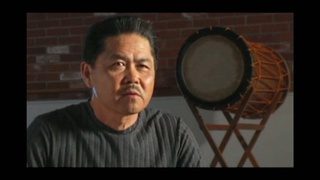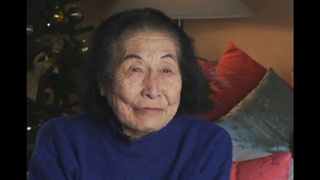Interviews
Mother taught him how to play the ukulele
Yeah, my mother used to play the ukulele. In those days, it seemed it was only natural that each home had an ukulele, and it wasn’t an expensive instrument like it is today. You know, you could buy a good Kamaka ukulele for five dollars. Of course, at that time, five dollars was a lot of money, probably. But, you know, they all had one in the home...but she’s never played solo ukulele. She played mandolin, you know, but not solo ukulele. But she taught me the chords, you know, to play a certain song and sing, you know.
She told me, a long time ago, she said "You know, you can never eat playing the ukulele" Haha! That's what she told me. "You will never make it a livelihood, you can never eat playing the ukulele!" Hahaha!
Date: August 2012
Location: Hawai`i, US
Interviewer: John Esaki
Contributed by: Watase Media Arts Center, Japanese American National Museum





